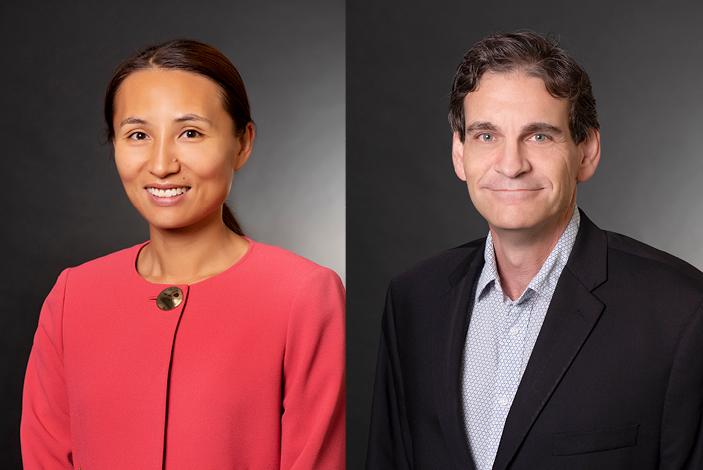
Building a truly symbiotic relationship

MU research suggests an organization's attitude toward people of different backgrounds is a key contributor to helping refugees become productive members of a host nation.
Ann Peng and John Schaubroeck, both professors of management at the University of Missouri, believe hiring refugees can boost the economies of host countries. In fact, research has shown that assimilation is easier for refugees who work, making it more likely that they will contribute to their new communities.
But a new study by Peng and Schaubroeck found refugees benefit most from a workplace that values differences and avoids stigmatizing people new to the community.
“The idea is that if you are in a favorable work environment, you will feel less ‘othered.’ However, there are factors that can amplify or mitigate that effect,” Schaubroeck said.
While most previous research shows that being employed increases refugees’ productivity and assimilation into society, Peng and Schaubroeck wanted to understand what about these work environments made refugees feel more included.
“It’s not just about being employed,” Schaubroeck said. “It’s the extent to which one perceives one really belongs in that organization that really matters. Do they see themselves as real members? Our findings suggest that’s the first step to feeling like a member of the society in which they have relocated.”
Their findings also suggest that when people are different from others, as with refugees, believing one’s leaders and the organization overall strive to treat all members fairly and respectfully goes a long way in making refugee employees feel included.
“While there’s not much the organization can do about an internal belief of stigma in a society, our research showed that having a climate favorable to differences—at all levels—renders that belief much less relevant,” he said.
The researchers sampled 389 Syrian refugees in 88 different organizations. The refugees were asked to take 30 minutes off from their jobs to complete a survey. They were given three questionnaires over two months to measure their insider status and what prompted these feelings. The researchers only talked with refugees who were employed.
Refugees are becoming increasingly relevant in the U.S. as the number of refugees in the country are skyrocketing. For instance, in May 2021, the U.S. saw its number of accepted refugees more than triple from the months prior, admitting 915 refugees compared to only 272 in February.
The nation has steadily increased its refugee acceptance since the beginning of the year, and the government has promised to increase the admittance even more as the year moves on. Schaubroeck believes these findings can help businesses adjust their environment to be more accommodating to refugees and help them learn to contribute to their host society. He said this improved quality of employment will not only benefit the refugees, but the communities they settle in as well.
“‘I’ Am Affirmed, but Are ‘We’? Social Identity Processes Influencing Refugees’ Work Initiative and Community Embeddedness” is currently in press and will be published in the December issue of Academy of Management Journal.
News release courtesy of the University of Missouri News Bureau.